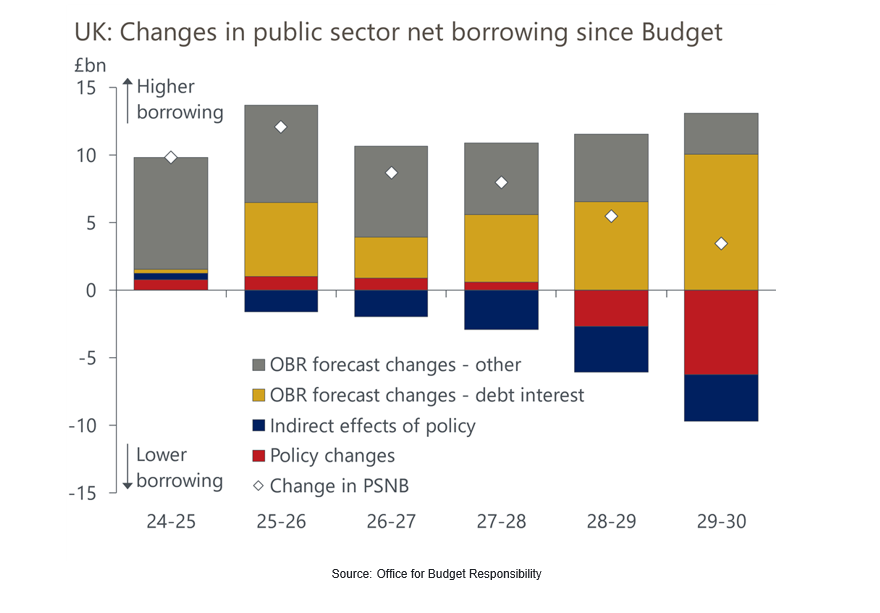Stopgap Spring Statement leaves problems unresolved
The Spring Statement delivered on Wednesday 26 March is likely to prove a stopgap ahead of a more comprehensive overhaul of UK fiscal policy in this autumn’s Budget.
What you will learn:
- The Chancellor blamed global instability for the deterioration in the Office for Budget Responsibility’s economic and fiscal forecasts. But the need to take remedial action was a consequence of leaving so little headroom in October’s Budget, and the new plans leave a similarly slim margin for error in 2029-2030.
- We already thought the OBR’s potential output forecasts were too optimistic, and today it upgraded them further after incorporating the impact of the government’s planning reforms. After years of productivity growth disappointing, we think the risks are heavily skewed towards a worse outcome.
- The new plans assume the government will increase defence spending to 2.5% of GDP. But the NATO target will likely rise to 3% or more, forcing the government to choose between further tax rises, greater spending restraint, or changing its fiscal rules yet again.

Tags:
Related Reports

The Economic Footprint of JLR in the UK
This report examines the economic footprint of JLR in the United Kingdom in 2024. The analysis is conducted both at the national level, as well as on the West Midlands and North West regions, where JLR’s main facilities are located.
Find Out More
Assessing fiscal risks in advanced economies
For some governments, pressure from markets to set out clearer or more ambitious fiscal plans may build, posing a downside risk to growth in the latter years of this decade.
Find Out More
US-UK trade deal shows tariffs are here to stay
We will not change our US forecasts based on the latest US-UK deal and what it signals for future agreements.
Find Out More
Higher tariffs damage UK growth prospects
Despite the recent appreciation, our The flurry of tariff announcements by the US government over recent weeks have impacted on our UK and global forecasts, published this week. Here, we explain the changes for the UK.
Find Out More